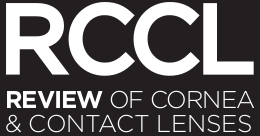 “Does my insurance plan cover that?” Those six words can send shivers down the spine of even the most seasoned contact lens practitioners. Invariably, that question will come up after a thorough case history, examination and case presentation, during which you diligently collect, perform, analyze and present your perfectly determined finding with the skill of a contact lens Jedi.
“Does my insurance plan cover that?” Those six words can send shivers down the spine of even the most seasoned contact lens practitioners. Invariably, that question will come up after a thorough case history, examination and case presentation, during which you diligently collect, perform, analyze and present your perfectly determined finding with the skill of a contact lens Jedi.
Cause for Concern?
But, why the angst and worry? There are only three possible answers to that question, “Yes,” “No,” or “I don’t know—let me find out.” Let’s dig deeper at the root cause of this frustration, and then deal with an easy strategy to combat the ensuing anxiety.
Many of us feel somewhat threatened when a patient challenges our recommendations. And, when the insurance coverage question arises, we perceive it as an affront to our clinical skills. After all, how can such a trivial thing influence our prescribing decision? Take a deep breath, Jedi—the patient is merely asking if their insurance will pay for what you are recommending—not necessarily saying that they will refuse your recommendation if made to pay out-of-pocket, at least not yet. More importantly, they are not questioning the soundness of your advice—just the cost.
 Keep it Simple
Keep it Simple
Keep in mind that important distinction as you answer the question, and don’t get defensive. Instead, simply answer with one of the three choices:
• “I’m not sure, but allow me to check.” Once you know the answer, of course, you’ll have to transition to one of the remaining responses. It is good to help prepare for the “No” response by adding, “Even if they don’t, the lenses I’m recommending are what would be best for you. Let me go check.”
• “Yes, they do.” And, if you’re in a particularly loquacious mood, “Fortunately, my best recommendation for your particular needs is covered.”
• “No, they don’t.” And, it is this response that cuts to the bone for most of us. From here, we often get flustered, stammer or change our recommendation. I would suggest a different mindset, which will lead to a different strategy. Because the patient is really questioning the cost and not your clinical judgment, pretend the question at hand is, “Are the lenses free?”
And, here’s a good way to tackle such a question: “The lenses I’m prescribing aren’t free. But, the cost is not the reason I’m recommending them. I am prescribing these lenses for you because...”
Taking this new strategy into consideration, try answering the insurance question with, “No, they are not covered by your insurance company, and here is why I am recommending them for you.”
Should the patient volley back with, “Can you fit me with lenses that are covered?” Do not be offended. Regardless of your answer, simply state your reasons clearly and succinctly. For example, “Yes, I can; however, my first recommendation will work better for you.” Or, “No. The lenses you need aren’t covered by your plan. The ones that are covered won’t work for you.”
Stick to Your Recommendation
Remember: it’s not your fault that your patients have the insurance they have, or in other cases, no insurance at all. It’s also not your fault that they are keratoconic or astimatic presbyopes. It’s not your fault, but it’s still your obligation to offer the best alternative to each and every patient every time, regardless of their perceptions of what things should cost or what should be covered.
Train your staff to effectively deal with this question both in person and on the phone. Role playing works great for this. Focus on staying positive, and as above, always keeping patients’ best interests at the forefront. To do otherwise would be immediately evident to patients.


